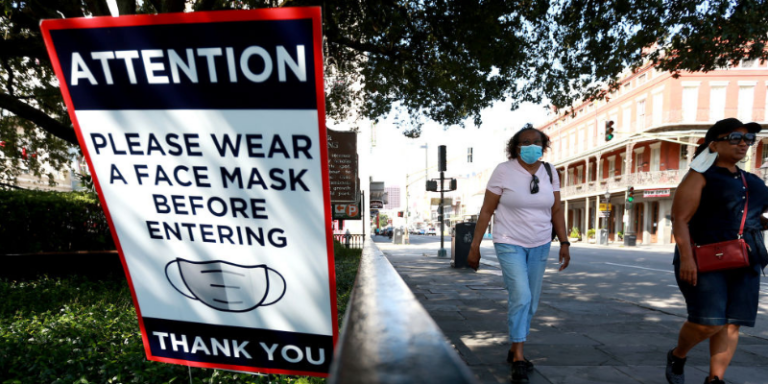The Mask Debate: It’s All Political
Why has the debate over public health become a partisan issue?
By: Jose Backer | August 8, 2020 | 429 Words

COVID-19 Masks (Photo by Sean GardnerGetty Images)
Then and Now
When Coronavirus first hit America, there was a lot of misinformation and debate regarding the use of masks in public. First, regular folks weren’t to use masks, as they were needed by medical professionals. Still, many rushed to buy face masks. It wasn’t long, however, before that official opinion from the experts changed, and people were shamed for not wearing masks.
Like most big issues today, this has become political. The right tends to be against mandated mask orders, and for a variety of reasons. Some believed that states did not have the power to legislate mask orders, and some argued that the legislation wasn’t necessary and should be left up to individual choice. Others argued that the expert opinion on masks could not be trusted after the consensus on mask-wearing appeared to change almost overnight.

(Photo by Ollie Millington/Getty Images)
Regional Differences
States have also taken very different approaches to combat the pandemic. Almost universally, large gatherings have been banned in the states with mandated mask orders. Other policies like paid sick leave and mandatory stay-at-home orders have been reserved for the states hit hardest by the pandemic like California, Florida, New York, and New Jersey. States in the North Plains and Mountain West region have not been hit as hard by the pandemic and are more relaxed in their restrictions compared to coastal states.
Much of the debate regarding facemasks has come from opposition to what many see as unfulfillable goals in testing and mortality rates from COVID-19. Originally, stay-at-home orders of about a month were meant to flatten the curve according to expert opinion. After this month, cases continued to rise, leading many to believe that the experts don’t know any more about the pandemic than regular folk. At the same time, proponents of universal mask-wearing have argued that the opposition to face masks is the cause of the spikes in cases in recent months.
Temporary, Unclear Solutions
It’s unrealistic to assume that a diverse country of more than 300 million will continue to lock itself in indefinitely. Without a clear timeline dictated beforehand, many will continue to refuse to obey government mandates, especially when the expert opinions informing these decisions have proven unsuccessful in defeating the first wave of the pandemic. Merely shouting at people to obey the government hasn’t worked and will never work without the existence of a solid, communicable plan. As of now, many states seem content mask requirements until cases plummet, but what comes after?
















